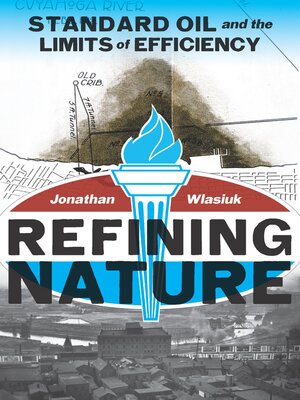Refining Nature
ebook ∣ Standard Oil and the limits of Efficiency · History of the Urban Environment
By Jonathan Wlasiuk

Sign up to save your library
With an OverDrive account, you can save your favorite libraries for at-a-glance information about availability. Find out more about OverDrive accounts.
Find this title in Libby, the library reading app by OverDrive.



Search for a digital library with this title
Title found at these libraries:
| Library Name | Distance |
|---|---|
| Loading... |
The Standard Oil Company emerged out of obscurity in the 1860s to capture 90 percent of the petroleum refining industry in the United States during the Gilded Age. John D. Rockefeller, the company's founder, organized the company around an almost religious dedication to principles of efficiency. Economic success masked the dark side of efficiency as Standard Oil dumped oil waste into public waterways, filled the urban atmosphere with acrid smoke, and created a consumer safety crisis by selling kerosene below congressional standards.<br><br>Local governments, guided by a desire to favor the interests of business, deployed elaborate engineering solutions to tackle petroleum pollution at taxpayer expense rather than heed public calls to abate waste streams at their source. Only when refinery pollutants threatened the health of the Great Lakes in the twentieth century did the federal government respond to a nascent environmental movement. Organized around the four classical elements at the core of Standard Oil's success (earth, air, fire, and water), <i>Refining Nature</i> provides an ecological context for the rise of one of the most important corporations in American history.







